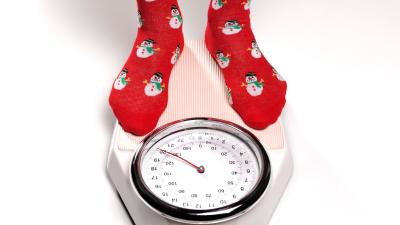Clearing Up Choline Confusion

A new article is stirring up confusion about the nutrient choline. Don’t be confused: For the most healthful sources of choline, plant-based diets are the clear choice.
A new BMJ opinion piece—by an author with egg and meat industry ties and who is concerned with “accelerated food trends towards plant-based diets/veganism”—is stirring up confusion about choline, an essential nutrient involved in memory, mood, muscle control, and other brain and nervous system functions. Don’t be confused: Eggs, meat, and other animal products are not the only sources of, nor the most healthful sources of, choline.
In fact, consuming dietary choline from animal products can actually lead to health problems. The New England Journal of Medicine published a study looking at egg consumption and found that TMAO, a byproduct of dietary choline, can lead to greater risk for heart attack, stroke, and death. But the authors pointed out that a vegetarian or high-fiber diet can reduce choline intake and modulate the risk for heart disease.
A study in the journal Circulation also linked choline to increased risk of heart disease. But the authors found that participants who followed a vegan or vegetarian diet were protected against the harmful effects of choline.
Instead of animal products, choose fruits, vegetables, grains, and beans, which are plentiful in choline. The National Institutes of Health states that certain vegetables and beans are a “rich source” of choline, with grains, nuts, and seeds being reliable sources in general. In fact, soybeans have more choline than beef and chicken, and potatoes and most beans have more than dairy products or even tuna.
Of course, there are many other reasons to choose plant-based sources of choline over animal products. About 60 percent of the calories in eggs are from fat—much of which is saturated fat. Dairy products and beef are also loaded with saturated fat, which increases the risk of heart disease, as well as Alzheimer’s disease and dementia.
But picking plants promotes brain health. One study found that aging adults who consumed more than 2.8 servings of vegetables per day had significantly slower rates of mental decline than those who ate fewer servings. Green leafy vegetables, in particular, were most strongly associated with a decreased rate of mental decline. Research also shows that children who consume the most healthful fiber-rich diets have higher IQs when compared to those with a moderately healthy diet or high-fat diet. They also suffer from less anxiety and depression.
For the most healthful sources of choline, plant-based diets are the clear choice.
Selected Food Sources of Choline
|
Food |
Milligrams (mg) per serving |
|
Soybeans, roasted, 1/2 cup |
107 |
|
Mushrooms, shiitake, cooked, 1/2 cup pieces |
58 |
|
Potatoes, red, baked, flesh and skin, 1 large potato |
57 |
|
Wheat germ, toasted, 1 ounce |
51 |
|
Beans, kidney, canned, 1/2 cup |
45 |
|
Quinoa, cooked, 1 cup |
43 |
|
Brussels sprouts, boiled, 1/2 cup |
32 |
|
Broccoli, chopped, boiled, drained, 1/2 cup |
31 |
|
Peanuts, dry roasted, 1/4 cup |
24 |
|
Cauliflower, 1” pieces, boiled, drained, 1/2 cup |
24 |
|
Peas, green, boiled, 1/2 cup |
24 |
|
Sunflower seeds, oil roasted, 1/4 cup |
19 |
|
Rice, brown, long-grain, cooked, 1 cup |
19 |
|
Bread, pita, whole wheat, 1 large (6 1/2 inch diameter) |
17 |
|
Cabbage, boiled, 1/2 cup |
15 |
|
Tangerine (mandarin orange), sections, 1/2 cup |
10 |







